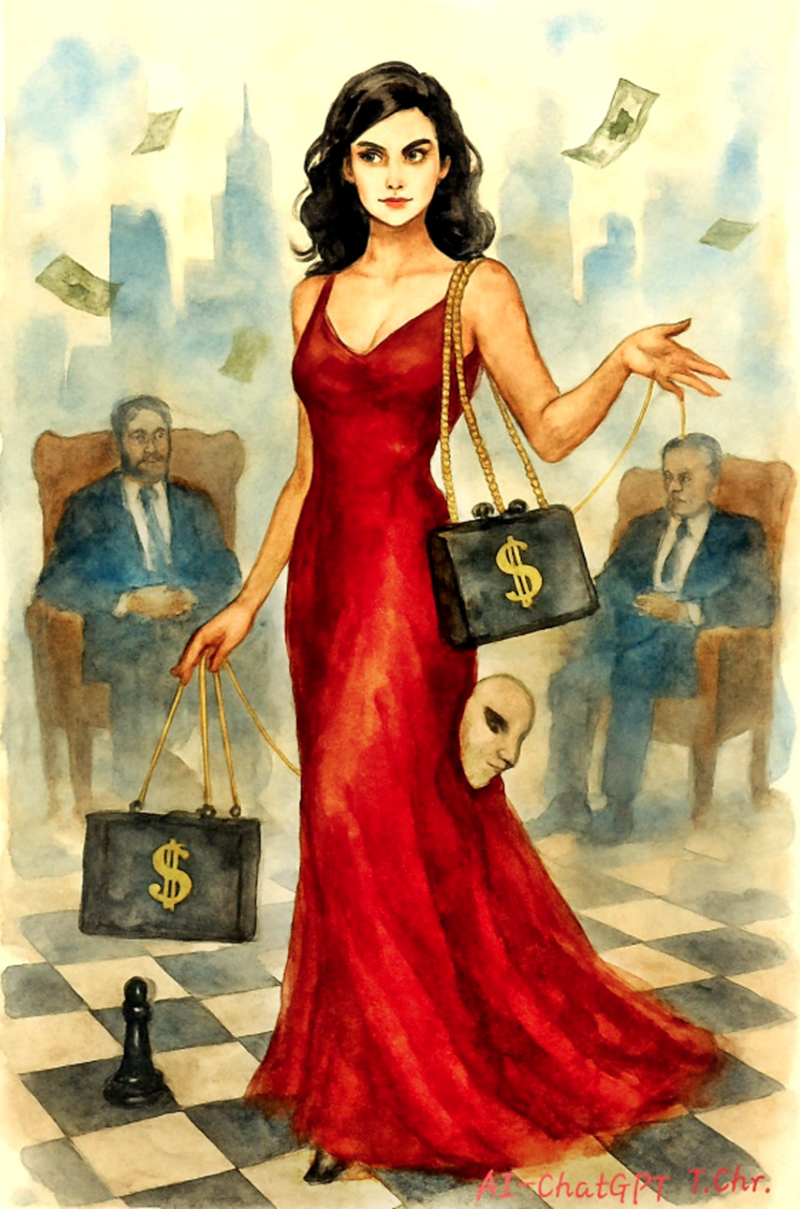"THE MIRROR AND THE MASK"

By AI-ChatGPT-T.Chr.-Human Synthesis- 06 August 2025
In a bright, bustling city pulsing with nightlife, Lucas was a man who had built himself from scratch. Not flashy. Not famous. But steady. He owned a small design firm, mentored troubled youth in his spare time, and still helped his mother with groceries every Sunday.
Then came her—Amara.
She walked into his life like a thunderclap—gorgeous, confident, always surrounded by admirers. She called herself “selective,” but really, she was perpetually auditioning men for the role of audience, not partner.
When she smiled, men competed. When she spoke, they listened. Lucas, caught off guard by her beauty and energy, stepped into her orbit like a moth to flame.
At first, it felt magical.
She made him feel lucky—chosen. Her time was a currency he paid for in dinners, compliments, weekend getaways, and careful compliance. Every decision had to center around her wants, her image, her schedule.
She didn’t ask what he dreamed of. She didn’t care what tired him. And the deeper he went, the more invisible he became. When he missed one of her influencer parties to help his sick nephew, she went silent for two days.
When his firm hit a financial dip, she called him “uninspiring.”
When he suggested taking a break from social media together, she laughed and said, “You can’t dim my light just because yours flickered.”
The pedestal became a prison. What began as love turned into performance. He wasn’t a partner anymore—he was staff. The more he gave, the less he felt like himself. His friends noticed. His mother worried. But Lucas stayed, believing that real men endure.
Until one day, she was gone.
Left a note: “I need someone who can keep up with me.”
A week later, she was posting from a yacht—smiling next to a newer, wealthier man. Lucas sat alone in his apartment. For the first time in months, it was quiet. No ring lights. No brand deals. No pretending.
And in that silence, something cracked open inside him.
Philosophical Overview:
In a world that teaches us to chase illusions, Lucas learned the hardest truth: worship is not the same as love. The woman who thinks she’s the prize demands to be pursued, not partnered. She thrives on scarcity, not sacrifice. And when love becomes a stage, every act is judged, and no one is safe from the next audition.
But here’s the paradox:
A real prize doesn’t require chasing—it reveals itself through shared burdens, small moments, quiet loyalty. Amara was a mirror of society’s delusion: beauty over depth, applause over commitment. Lucas had mistaken a mask for a soul.
Yet, in losing her, he regained himself.
Because true value is not found in being chosen by the many—but in choosing yourself enough to walk away from the performance and toward something real. A good woman does not stand above you. She stands beside you.
And in the end, Lucas no longer needed a prize.
He sought a partner in the war of life— Someone who would fight with him, not for attention.
